The last week of May and the first week of June are both anticipated and dreaded by fans of road racing in equal measure as the annual Isle of Man TT races commence, first with a week of practice and qualifying followed by a week of racing. Anticipated because this is the purest form of racing – man and motorcycle against the track and the clock, around 37.75 miles of public roads: dreaded because it is man and motorcycle against the clock around the deadliest race track in the world.
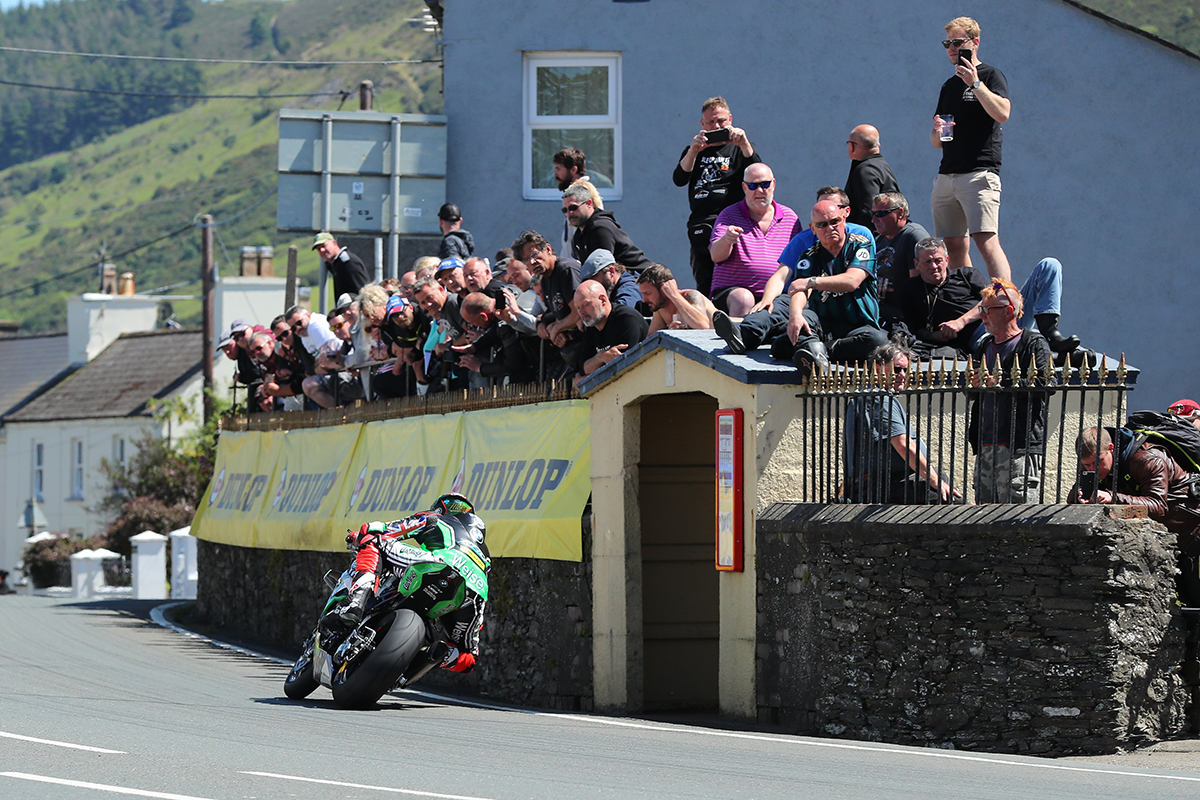
It is impossible to ignore the fact that, since 1907, 266 riders have lost their lives at the TT, six in 2022 alone. In only two runnings of the event have there been no fatalities. It is an appalling statistic and yet the event survived some very lean years in the late 1970s and ‘80s, immediately after its world championship status had been revoked, to become an icon of motorsport. Even if you can’t attend, it is now televised more widely than at any time in its history.
The arguments against are as old as the event itself. ‘How can you condone such wholesale slaughter of men?’ is the common refrain. ‘How can this be allowed to continue?’ ‘It must be stopped.’ They’ve all been heard a million times and yet the TT continues and, to repeat a hackneyed phrase in this context, thank goodness it does.
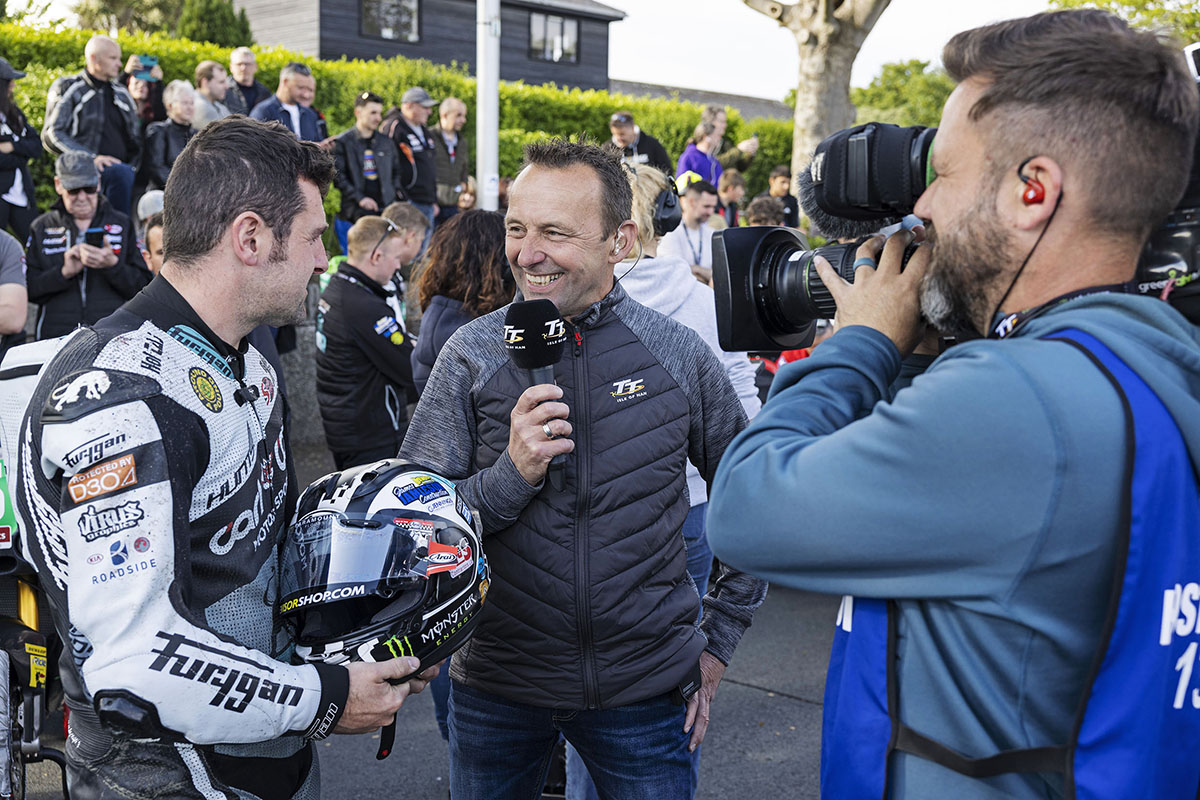
It is impossible to talk about the TT without mentioning the death rate. But it is much more instructive to talk about the survival rate for, if there are deaths every year, then also there are those who live to ride another day, one of those days being next year at the same track and, with at least 60 riders competing each year, the survivors far outnumber the casualties. There might be only one winner of each race, but to simply finish, is a victory for most riders.
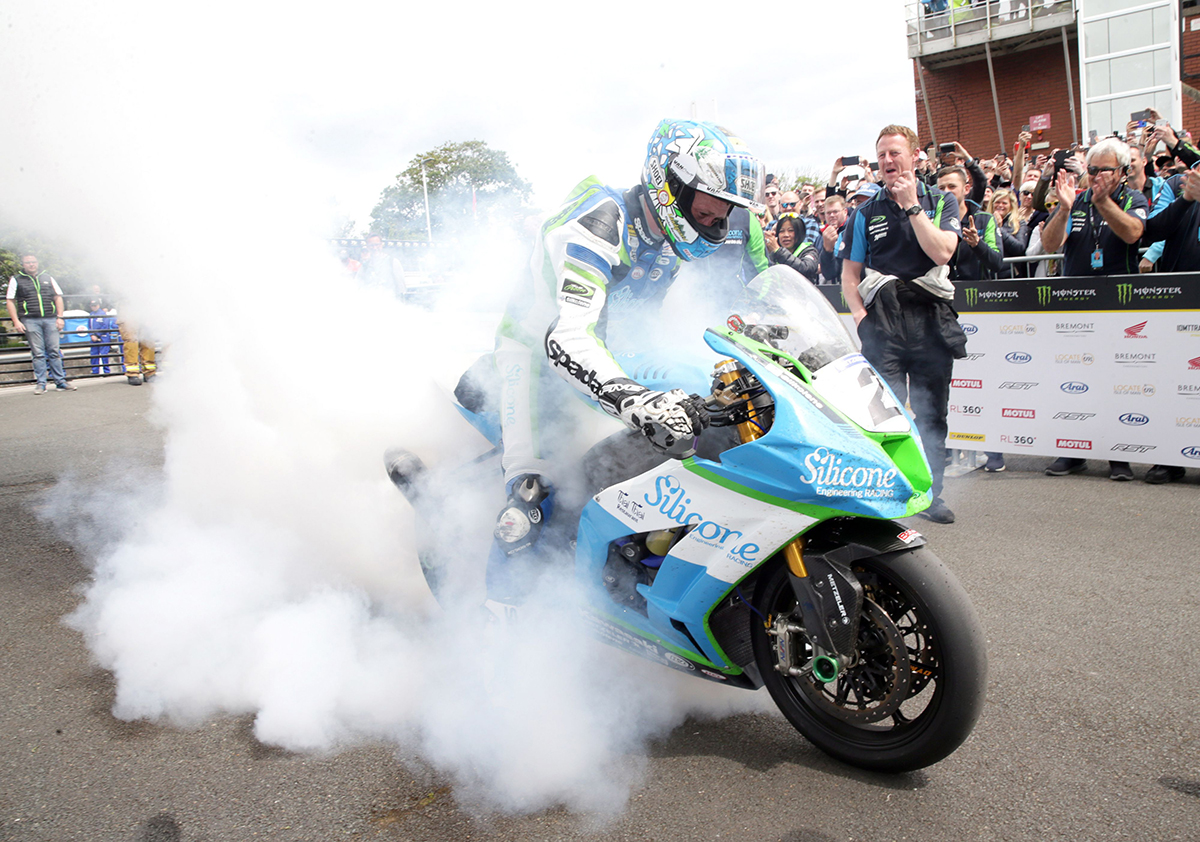
So this article is to celebrate the few (among all motorcycle racers) who choose to live their lives to their own rules and dictates. Because that is exactly what they are doing by agreeing year after year to return to the Isle of Man and facing down their demons.
For us watching, there is the uncomfortable knowledge that even the greatest among them – the McGuinesses, the Dunlops, the Hickmans, the Harrisons – could succumb: not through their own mistake but from something completely beyond their control. The fact that they were putting themselves in the way of that danger should not be seen as frivolous: it’s a challenge, one that the rest of us cannot fathom but which is irresistible, as much as climbing Everest or performing some other extreme sport.
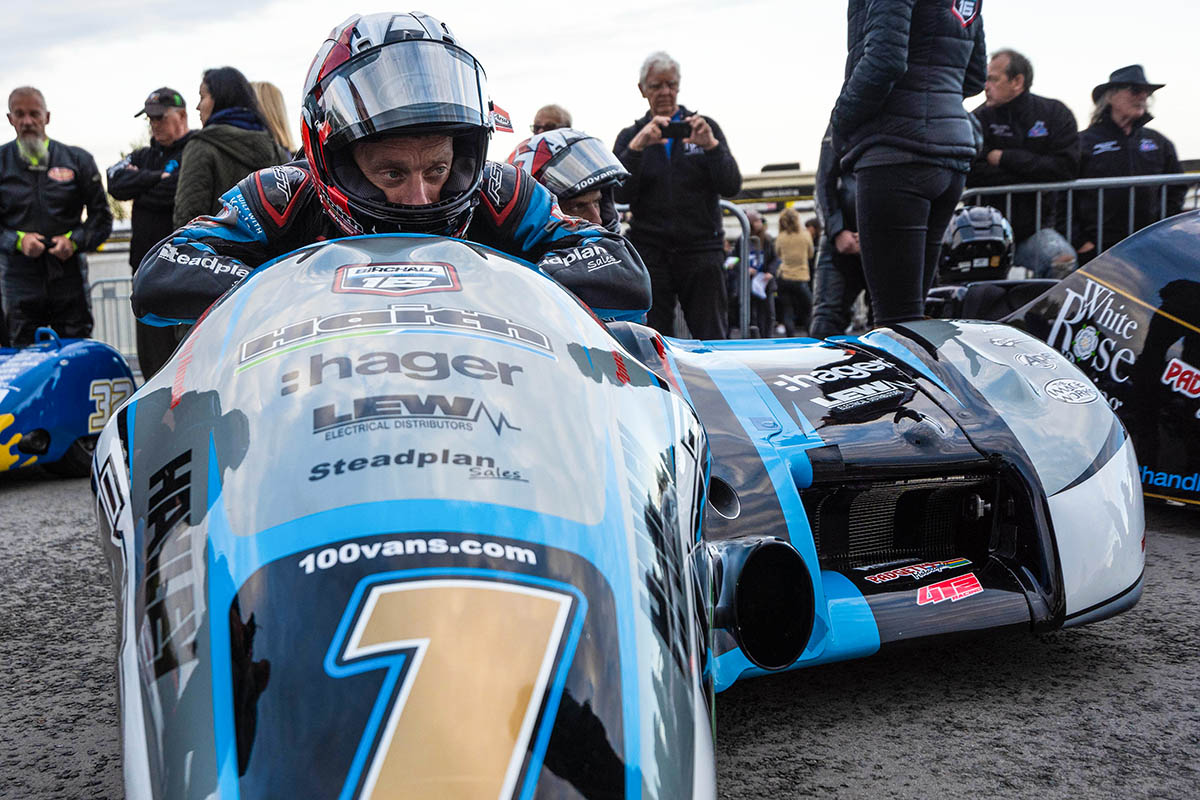
To a man, all of them will defend their decision to race. Most recently, Peter Hickman, who holds the lap record at over 135mph average for a lap – under 16 minutes – spoke up about it:
“I’m not forced to be here. I want to be here,” Hickman told broadcaster Sky; “It’s an obvious risk.
“A lot of people think we’re just crazy or idiots. You take your brain out and put your helmet on.
“It’s very, very much the opposite effect. So you’ve really got to use your brain.
“And you’ve got to take the risk when you want to take the risk – or if it’s necessary.
“So, for example, I hold the outright lap record here and I’m constantly getting asked, ‘Are you going to break that record?’ And my answer always is ‘only if I have to’.
“And by that I mean, I win the race at the slowest possible pace. Because the slower I win the race, the less risk to me.
“Life is short as it is. I would rather go away doing something like this.”

And that’s the crux of the matter. Who is to say how we should live our lives and what risks we should take, especially if it is hurting no one else? And who lives more than a TT rider during even one lap of the course, let alone the four or six laps that make up the majority of the races?
It sounds corny – and it probably is – but surely to die trying to do something well is a better use of life than avoiding all risk and dying in your bed? Bruce McLaren thought so: “To do something well is so worthwhile that to die trying to do it better cannot be foolhardy.” McLaren died testing a McLaren Can-Am car at Goodwood in 1970.
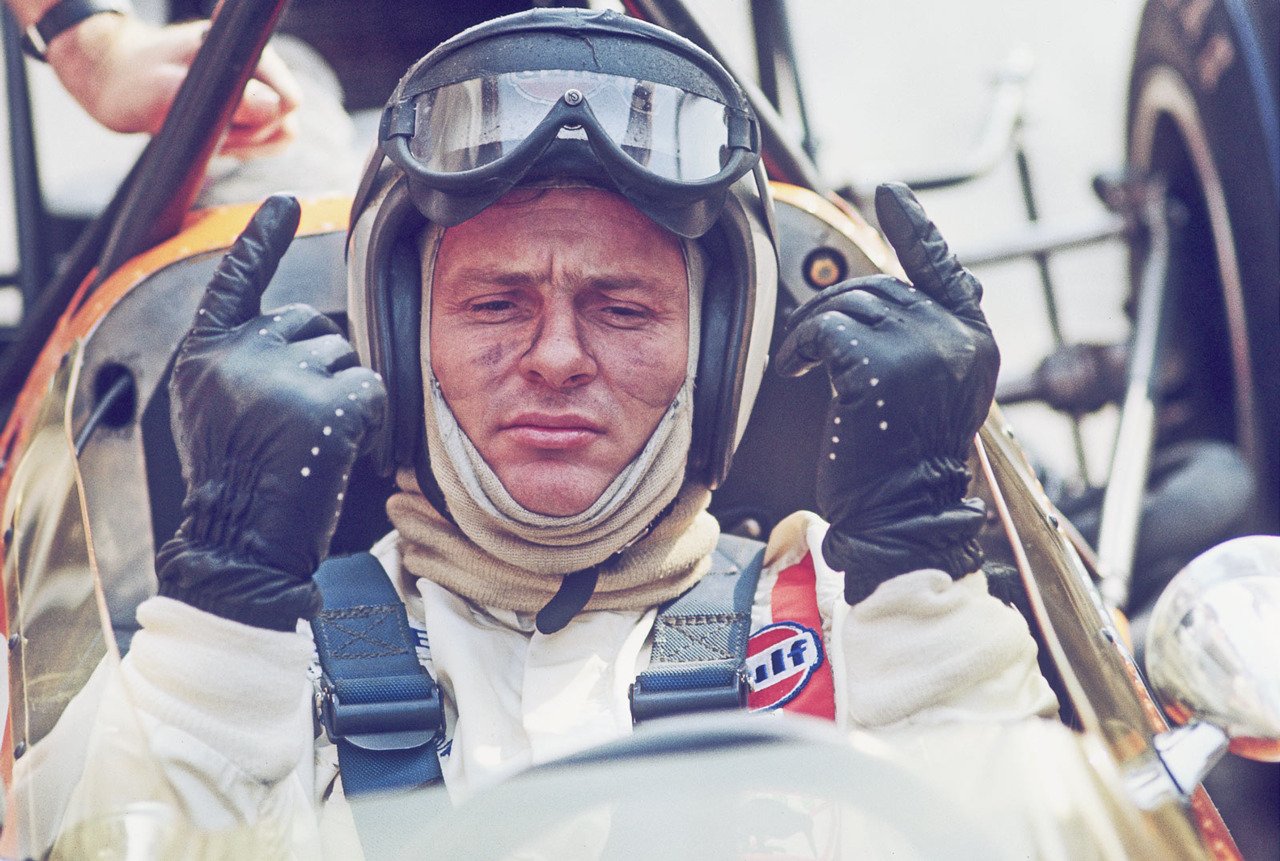
Yes, that quote romanticises the danger of the sport but it has more than a grain of truth. Calls to ban the Isle of Man TT races have rung out throughout history but never more so than today, when people feel it is their right to comment on how others live their lives and even to stop them from doing so if it offends them. Thank goodness the TT riders themselves are prepared to stick two fingers up at the critics and stick to their guns.
Then, of course, there is the economic effect of the TT on the island. Of course, without the TT, the Isle of Man wouldn’t suddenly cease to exist, but an awful lot of people’s livelihoods would be taken away: that doesn’t seem to bother those who would have it banned. Rather salve their own moral rectitude and self-importance than worry about the effect on people they have never met.
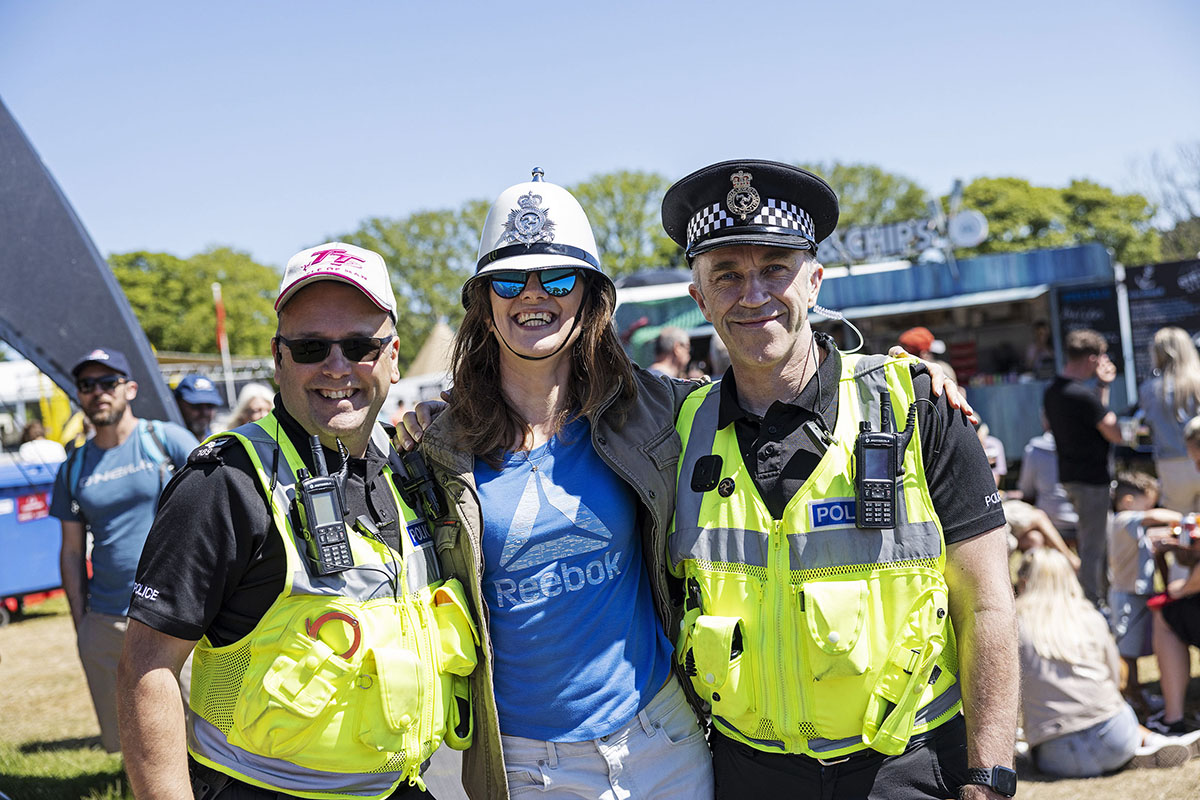
No, the Isle of Man TT races are absolutely fantastic, not because it is the last outpost of individuality and freedom of choice, but because what these men and women do seemingly defies all laws of physics or belief in what is possible. Sit and watch any on-board lap on YouTube (such as the one below) and not only are the speeds utterly mind-bending and incomprehensible, but the act of memorising a lap that comprises an estimated 200 corners of every conceivable type and speeds of up to 200mph is beyond most of us.
It takes years for a rider to properly learn the course, a feat made infinitely easier these days by the aforementioned YouTube clips. What you have to remember is that you can only follow advice from fellow riders regarding a particular corner when you yourself are travelling as fast as they are; if they say that your turn-in point for a corner is when you can see X in the distance, you have to remember that they are doing it when travelling at 175mph on the approach. If you try it at 145mph, for example, you will turn in far too early and the results could be much worse than a slow lap time.
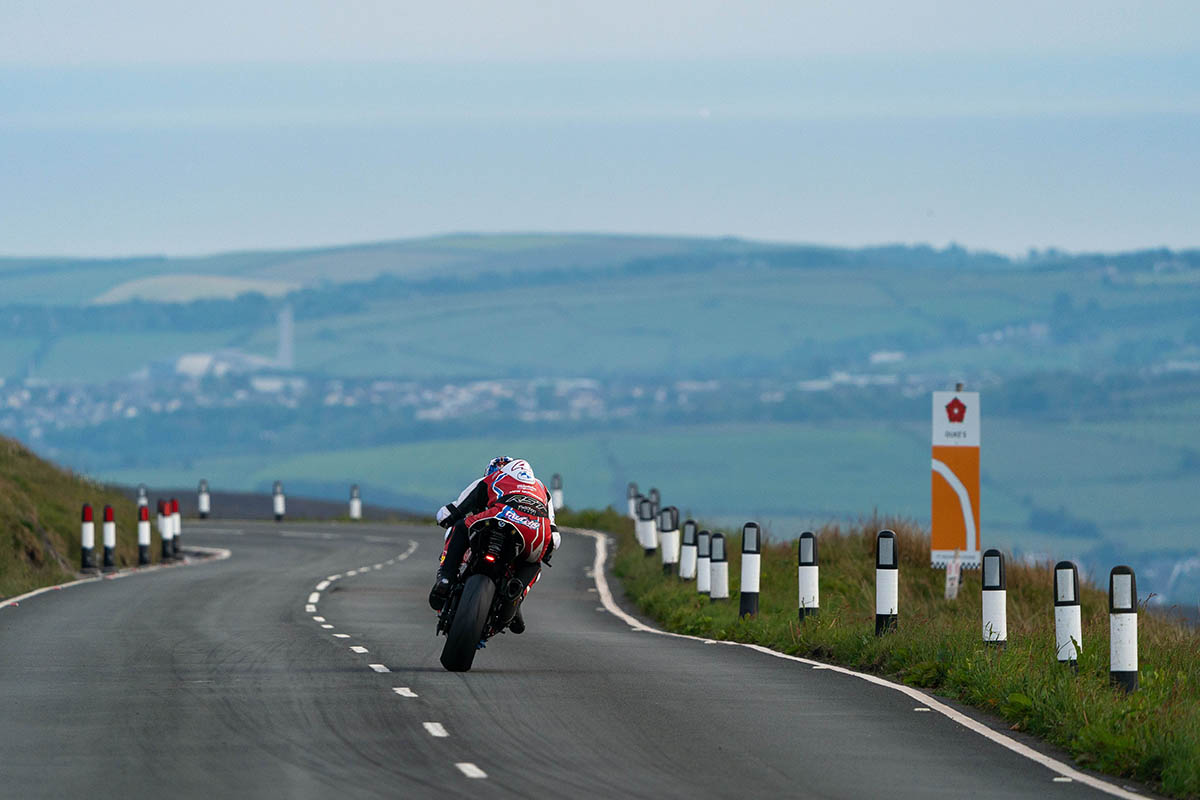
But watching the speed that these riders approach and ride through corners is awe-inspiring and I’m using the word ‘awe’ in its correct definition: ‘a feeling of reverential respect mixed with fear or wonder.’ If you are anything but a world-class racer, it is hard to comprehend exactly what they are doing. Watch the video below of bikes passing through St Ninian’s Crossing, perhaps a mile from the start line and at full speed it’s frightening enough: slowed down and you see the riders way out of their seat and both wheels off the ground and it’s terrifying. And this happens a dozen times per lap, all in the blink of an eye.
Watching a TT is an exercise in suppressing fear. It’s completely mesmerising but you know that any single moment can bring disaster and, even if the top riders know every inch of the course, you can no more remove the thought of impending disaster than you can guarantee that everyone will get through the whole race without some manner of incident! The riders trust their skill: and so should we.
But there I go again: concentrating on the ‘negative.’ Watch a full on-board lap and it’s like ballet: perfectly choreographed, flowing and magical. There are no sudden movements, no frantic grabbing of the brake or the accelerator: it’s pure speed and talent. The riders know what is coming next: they are thinking seven corners ahead as the exit from one corner has speed consequences onto a straight seven corners ahead. Many riders will say that everything slows down, their brains are working so fast and ahead of themselves. It is almost superhuman. It’s also poetically beautiful.
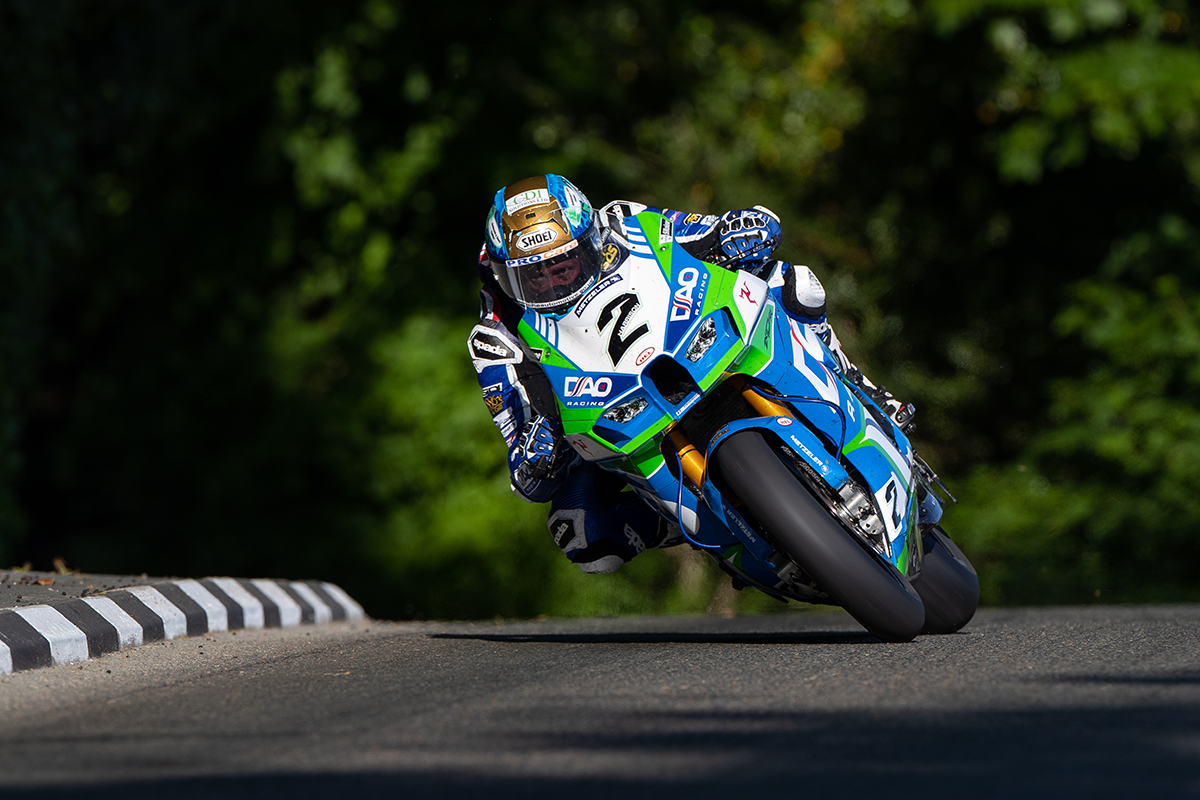
The riders should be considered elite athletes, even if they are more down-to-earth than any manual labourer and don’t shy away from calling a spade a spade (in rather more earthy tones than that…) when the occasion calls for it.

The punishment the body takes is indescribable, the effort enormous and relentless: it makes MotoGP riders and their 40-minute sprint races (by comparison) on sanitary permanent circuits with no hazards whatsoever look like overpaid prima donnas. Various MotoGP riders have visited the TT and all of them have come away shaking their heads at the madness of it all. None of them have dared race there.
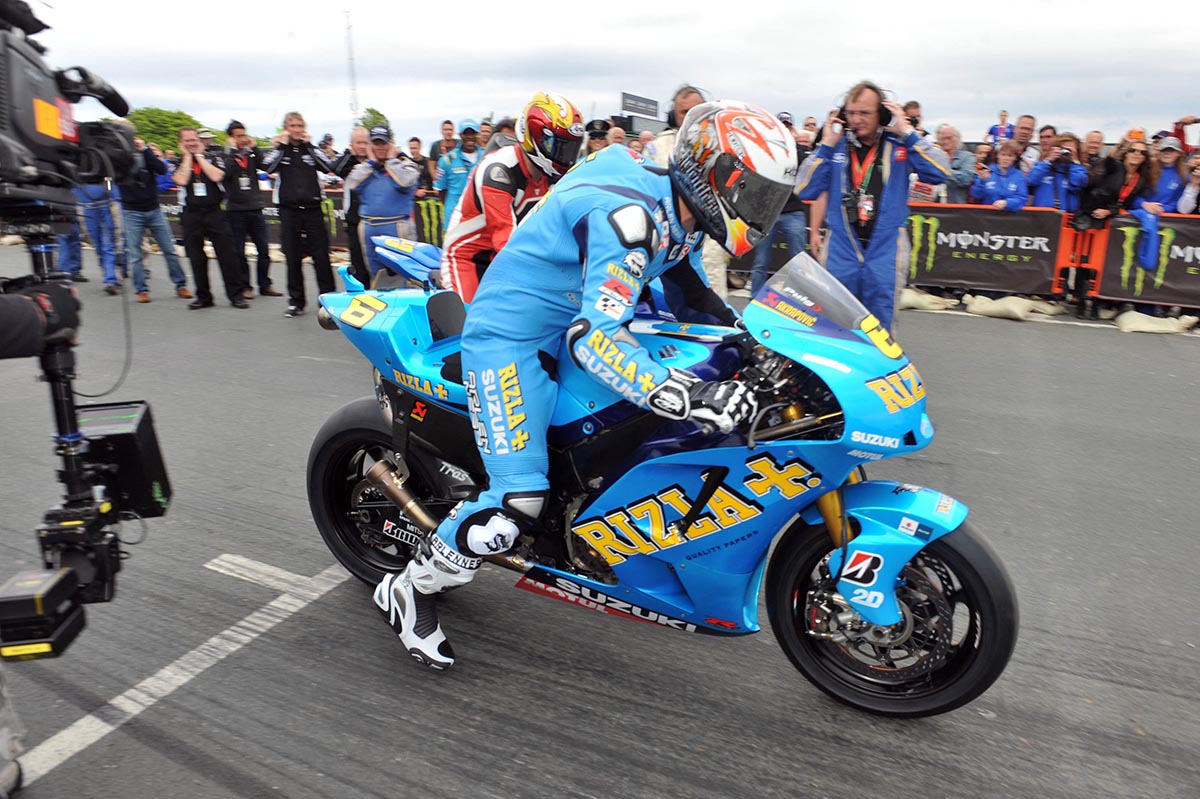
As I write this, the week’s racing is about to commence, the first race being the Supersport TT, for 600cc bikes. Practice week has been mesmerising, culminating with a new unofficial lap record for Michael Dunlop at 135.5mph, beating Hickman’s record by a couple of tenths. During the Thursday evening practice, Peter Hickman did a standing start lap at 133.797mph. That’s a standing start, not a flying lap where the line is crossed at both the beginning and the end of the lap at full chat.
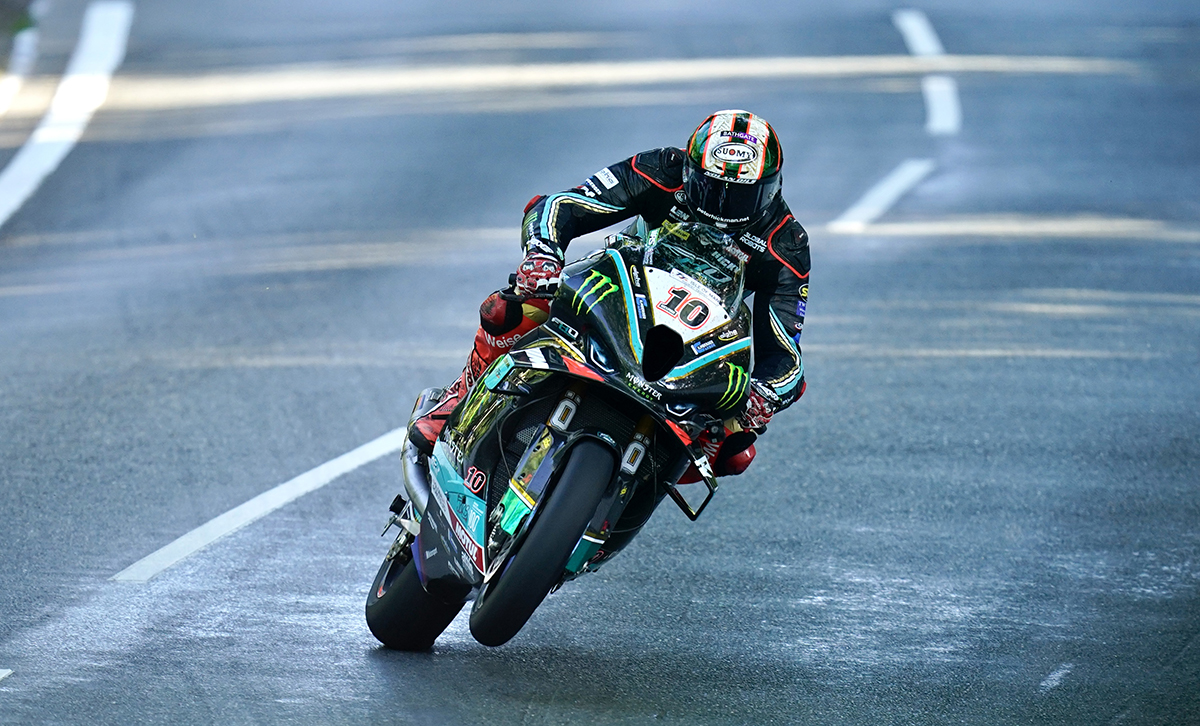
TT veteran John McGuinness (he wouldn’t thank me for saying that, but it’s undeniable) has done a lap at 128.724mph in practice: this is a man, don’t forget, who is over 50 years of age, who is by his own admission slightly overweight and, even if he is no longer the man to beat, is still a formidable competitor and not a rider that anyone ignores. With 23 victories and over 100 starts, his experience is his most valuable weapon and it is experience that wins TTs as much as outright speed.
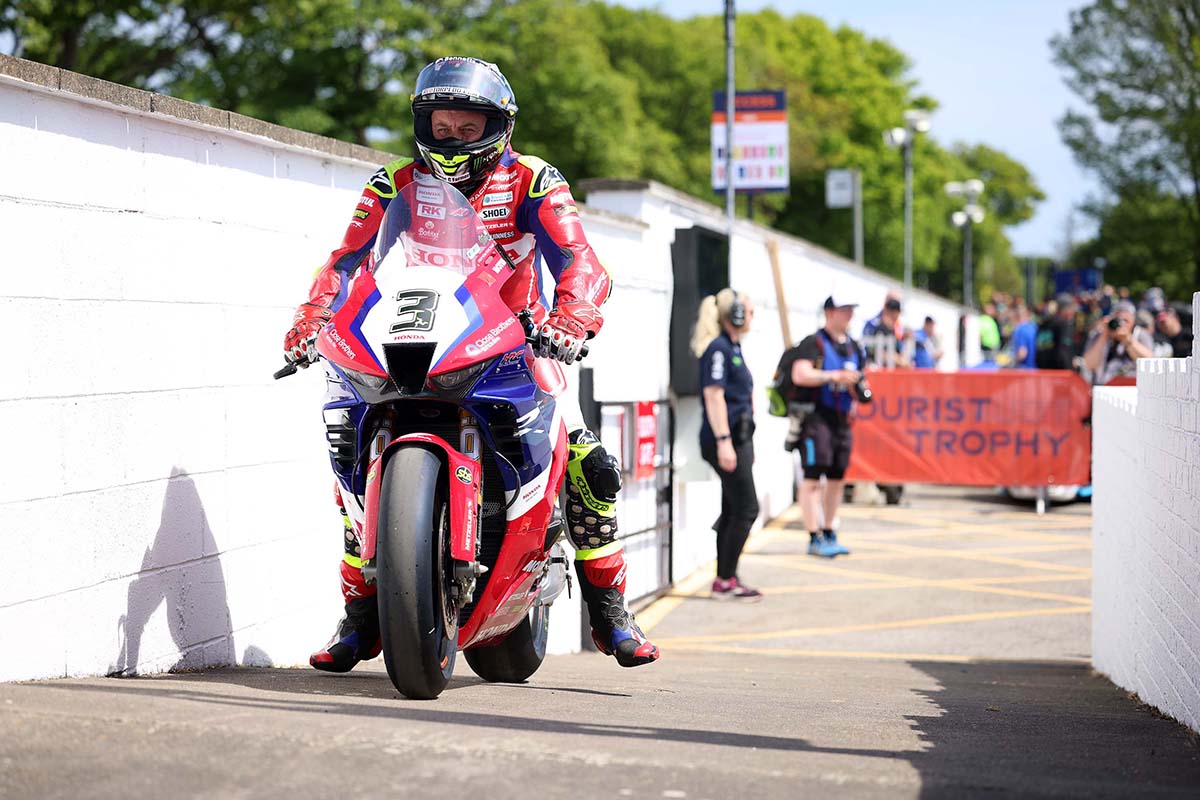
I was listening to McGuinness in one interview this week and I really think this TT will be his last one. He’s put a lot of effort into getting ready for this one and I think he’s said to himself, or had said to him, that if he’s going to call time, then go out properly and not do it half-arsed. He’s still enjoying it and that’s the best time to retire, but even he must realise that risking everything for a place off the podium isn’t worth it, especially after all he has achieved. He’s a realist and I think he’ll be comfortable with the decision when it’s made. I don’t think he can win, despite what I said above – the ‘youngsters’ are way beyond snapping at his heels. A podium would be a great way to bow out: a win unlikely but who doesn’t want to see him win one more, just for the hell of it?

To finish, an observation about outright speeds. The strange thing is, that, once a speed barrier is breached, then everyone does it. As soon as the magical 100mph barrier was broken, by Bob McIntyre in 1957, a second rider matched it on the very next lap and it has been the same ever since. The first 110mph lap was posted in 1976 – nineteen years later – the first 120mph lap in 1989 – only 13 years later – and the first 130mph lap in 2007 (18 years for those too lazy to work it out) and in each case, once the barrier was broken, everyone started doing laps at that speed. Funny, isn’t it?
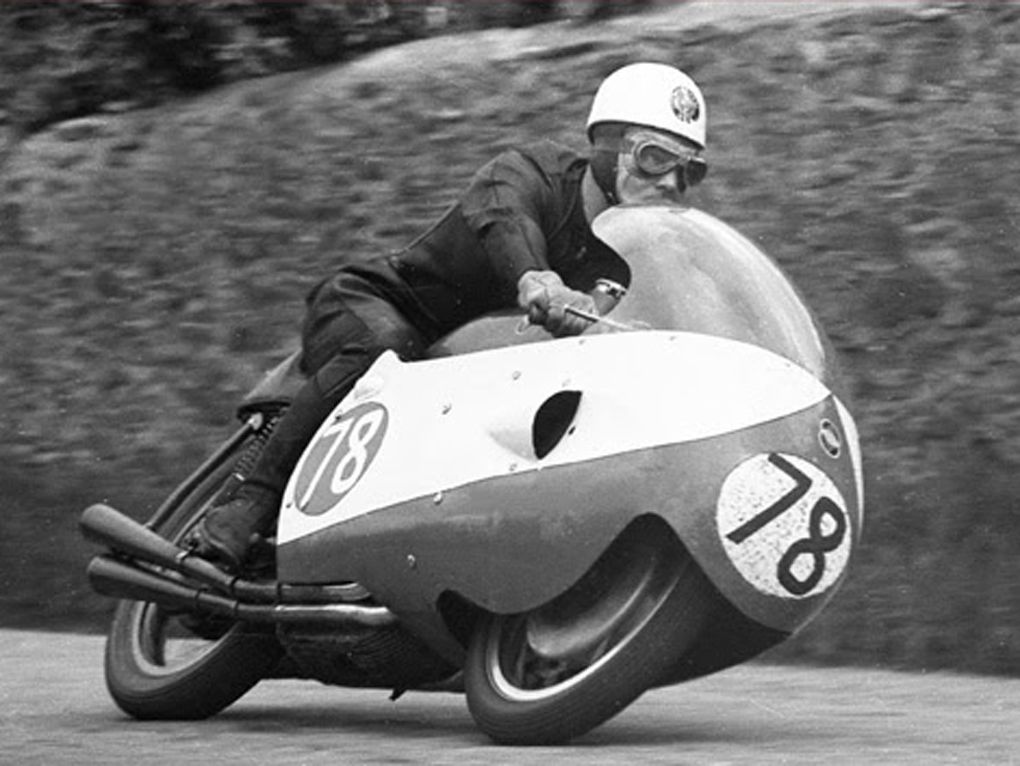
It took a further 11 years to raise the record to 135mph. Now, a 130mph lap is seen as being commonplace and anything under means you’re not on the podium, let alone in contention for a win. Whether we will ever see a 140mph lap is in the lap of the gods. A lap under 17 minutes was hailed as amazing but is a sub-16-minute lap possible? If that is the case, where will it stop? Will the powers-that-be be forced to start implementing speed-reducing measures? On a 37-mile lap, is it even feasible? A chicane might slow the riders for a few hundred metres but it would have little effect over a full lap and the speeds would still be largely the same.
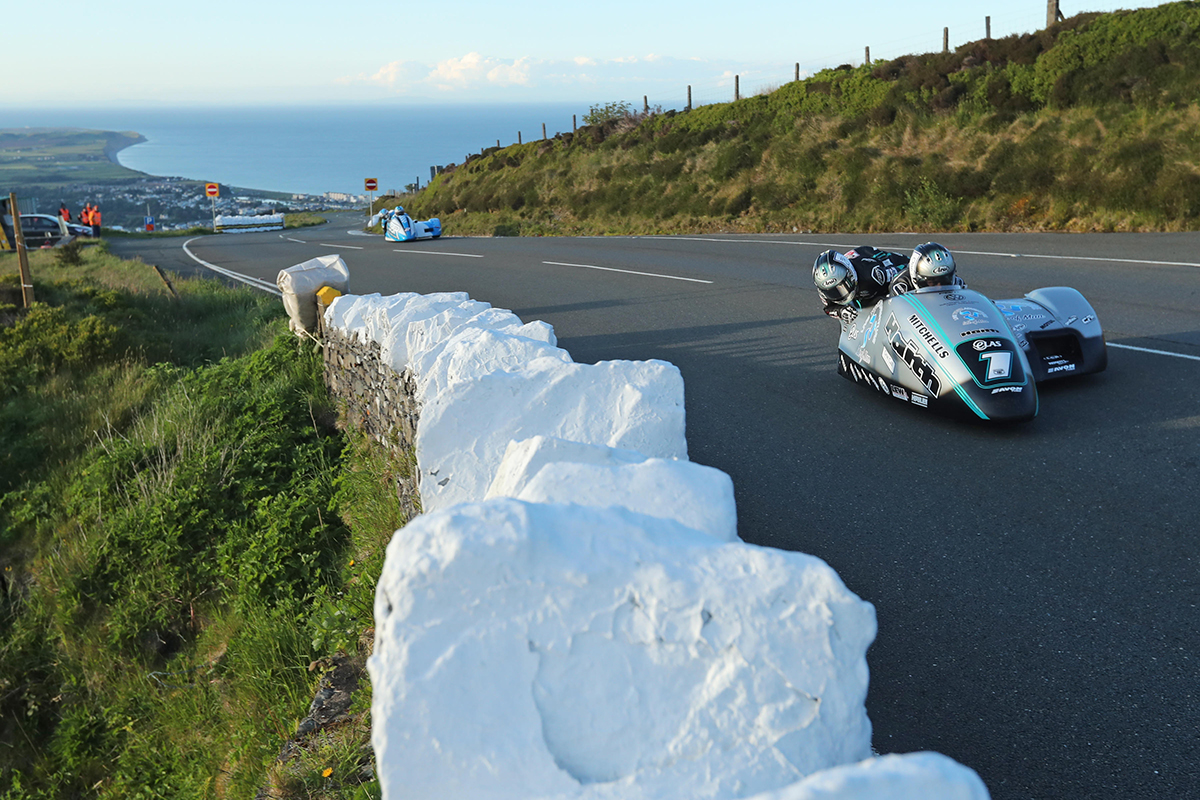
Would artificial restrictions be against the ethos of the event or will it become a necessity to ensure survival? Quite how the TT has escaped censure thus far is unfathomable and you can only imagine that there are those who would ban it forthwith given half the chance. An artificial restriction would go some way to fend off such an outcome, as unworkable as it would be in reality.




